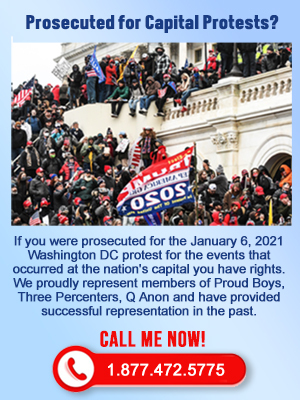Conspiracy is a large category of crimes in which more than one person works together in secret with the object of committing a crime. In federal and state laws, there is no such thing as a criminal conspiracy that stands alone – that is, you cannot “conspire” to engage in a noncriminal act. Rather, conspiracy takes place when a group of people collude together for an objective that is recognized as criminal under some other federal or state statute. As a federal offense, conspiracy is defined under “Conspiracy to Commit Offense or to Defraud United States,” 18 USC § 371.
Conspiracy Laws
Federal conspiracy laws are intended to discourage major crimes requiring the participation of more than one individual by providing for additional charges, and hence additional punishments, for such crimes. A conspiracy does not have to be large: Two people can constitute a conspiracy. Generally speaking, the law recognizes that all conspiracies are somewhat different, so the specific criminal act in question helps determine the sentencing expectations.
Conspiracy Crimes & Charges
Federal conspiracy laws define conspiracy as “two or more persons” who “conspire together to commit any offense against the United States, or to defraud the United States, or any agency thereof in any manner or for any purpose.” Federal statutes recognize two different kinds of conspiracies, which match up with the structure of the laws defining crimes in general:
- Conspiracies in which the object of the conspiracy is a felony offense.
- Conspiracies in which the object of the conspiracy is a misdemeanor offense.
Determining whether the object of the conspiracy is a felony or misdemeanor is the major criteria involved in deciding the specific penalties that apply and how harsh they might be under the law.
YouTube Special Feature
Matt Kaiser, a Washington DC federal criminal defense attorney at The Kaiser Law Firm PLLC , describes how conspiracy charges work in a federal criminal case. Federal prosecutors love to bring conspiracy charges. Yet there are a number of misunderstandings about exactly what federal conspiracy charges require.
Conspiracy Punishment
Under 18 USC § 371, individuals may be punished for conspiracy against the U.S. federal government with a term of imprisonment not more than five years, as well as a fine. In practice, conspiracy prosecution can be challenging, and prosecutors frequently work with members of a conspiracy to obtain evidence against its other members. This can substantially reduce the prison terms that an individual charged under conspiracy laws might expect to face. In addition to prison time, individuals may face a fine commensurate with the public harm that did or reasonably would have resulted from the conspiracy being carried out.
Conspiracy Sentencing Guidelines
As stated above, conspiracy charges where the object is a felony can result in prison terms up to five years as well as fines. However, conspiracy charges focusing on a misdemeanor offense are punished much less severely. Federal statutes dictate that such punishment cannot exceed the maximum punishment set forth for the misdemeanor offense, no matter how many people were involved in the conspiracy. In practice, this provides protection against a misdemeanor offense being punished with the severity of a felony.
Conspiracy Statute of Limitations
Federal statute 18 USC 3282 provides the basis for the statute of limitations applying to various federal offenses. This statute indicates no American citizen can be tried, prosecuted in a court of law, or punished for noncapital offenses after 60 months of the commission of the offense. To be valid, an indictment must be found or information instituted within that time. In some cases, a conspiracy with the objective of committing a capital offense, like murder or kidnapping, may still be prosecuted after five years, even if the conspiracy was not successful.
Conspiracy Cases
Because conspiracy can be an element of such a wide variety of other crimes, there are many different ways that conspiracy charges can come about. Recent federal conspiracy charges have run the gamut from relatively simple fraud to extremely complex international schemes:
- In October, 2013, a former United States Marine was reportedly convicted of conspiracy to defraud the United States for allegedly accepting $150,000 from military contractors under illegal circumstances while deployed in Iraq. (The Los Angeles Times)
- Also in October 2013, a federal grand jury indicted more than a dozen members of the self-avowed “hacktivist” organization Anonymous for engaging in a “worldwide conspiracy” of cyber-attacks launched at private companies and government organizations in “protest” of their refusal to process donations to the website WikiLeaks. (Huffington Post)
Conspiracy Quick Links & References
- An Overview of Conspiracy Laws from the Federal Congressional Research Service
- Conspiracy to Commit Fraud, a Related Federal Charge Involving Multiple Parties
- Conspiracy Against Rights and Other Forms of Conspiracy Pertaining to Civil Rights
- From the Department of Justice: More on Conspiracy to Defraud the United States
- Federal Conspiracy Statute Overview Including the Definition of Federal Conspiracy
Conspiracy Laws by State
Alabama, Alaska, Arizona, Arkansas, California, Colorado, Connecticut, Delaware, Florida, Georgia, Hawaii, Idaho, Illinois, Indiana, Iowa, Kansas, Kentucky, Louisiana, Maine, Maryland, Massachusetts, Michigan, Minnesota, Mississippi, Missouri, Montana, Nebraska, Nevada, New Hampshire, New Jersey, New Mexico, New York, North Carolina, North Dakota, Ohio, Oklahoma, Oregon, Pennsylvania, Rhode Island, South Carolina, South Dakota, Tennessee, Texas, Utah, Vermont, Virginia, Washington, West Virginia, Wisconsin, Wyoming
